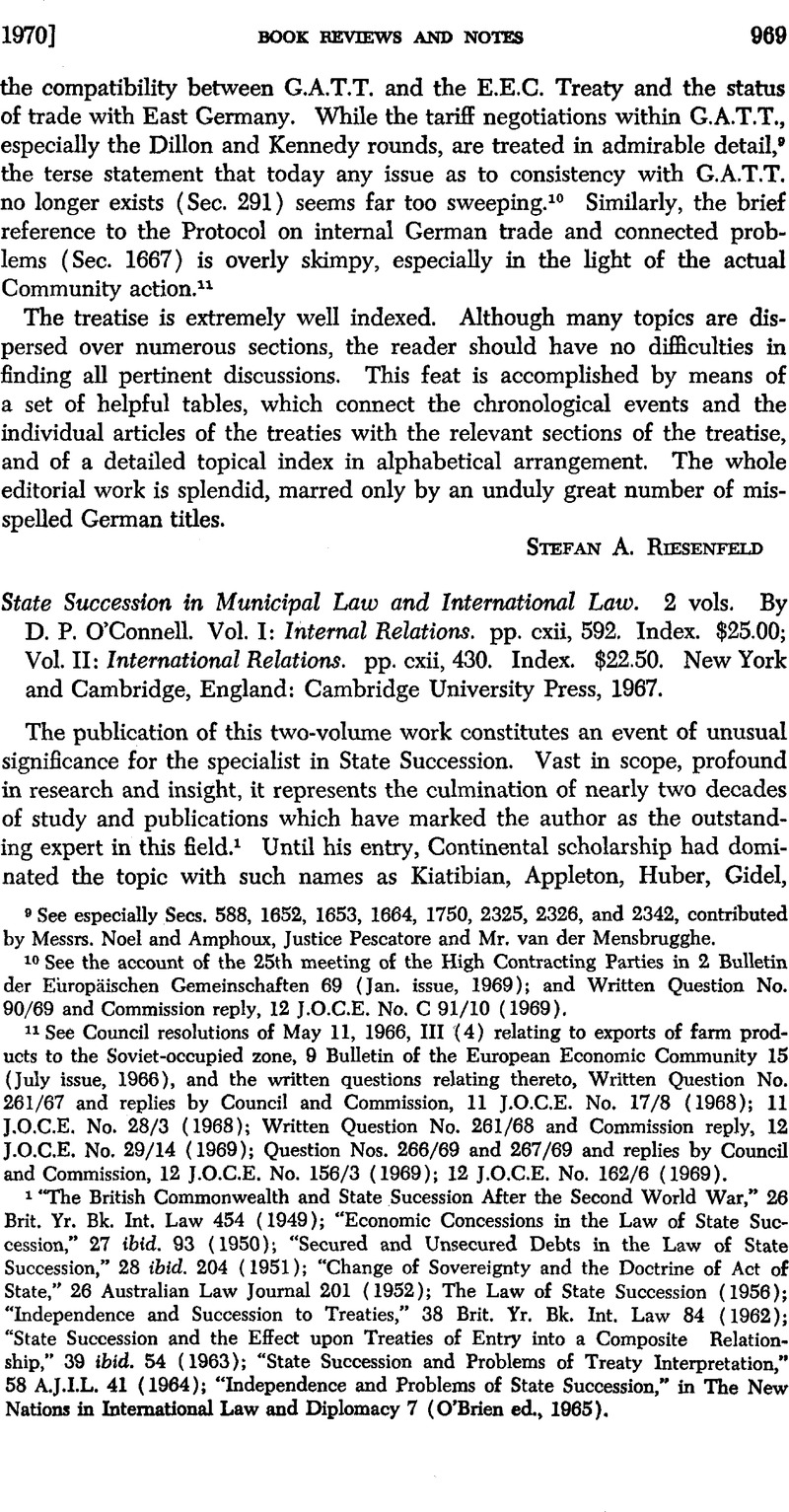No CrossRef data available.
Article contents
State Succession in Municipal Law and International Law. 2 vols. By D. P. O’Connell. Vol. I: Internal Relations, pp. cxii, 592. Index. $25.00; Vol. II: International Relations, pp. cxii, 430. Index. $22.50. New York and Cambridge, England: Cambridge University Press, 1967.
Published online by Cambridge University Press: 28 March 2017
Abstract

- Type
- Book Reviews And Notes
- Information
- Copyright
- Copyright © American Society of International Law 1970
References
1 “The British Commonwealth and State Sucession After the Second World War,” 26 Brit. Yr. Bk. Int. Law 454 (1949); “Economic Concessions in the Law of State Succession,” 27 ibid. 93 (1950); “Secured and Unsecured Debts in the Law of State Succession,” 28 ibid. 204 (1951); “Change of Sovereignty and the Doctrine of Act of State,” 26 Australian Law Journal 201 (1952); The Law of State Succession (1956); “Independence and Succession to Treaties,” 38 Brit. Yr. Bk. Int. Law 84 (1962); “State Succession and the Effect upon Treaties of Entry into a Composite Relationship,” 39 ibid. 54 (1963); “State Succession and Problems of Treaty Interpretation,” 58 A.J.I.L. 41 (1964); “Independence and Problems of State Succession,” in The New Nations in International Law and Diplomacy 7 (O’Brien, ed., 1965)Google Scholar.
2 Professor O’Connell’s concern with problems of state sucession has not inhibited his productivity in other, even unrelated fields, including the authorship of a widely used two-volume treatise on International Law (Stevens-Oceana, 1965) and a biography of Cardinal Richelieu (Weidenfeld and Nicholson, 1968)Google ScholarPubMed.
3 “The needs of international trade . . . are not superior to those of internal trade and the restrictions accepted for the latter in order to attain uniformity of regulation should suffice for the former.” Battifol, , Traité de Droit International Privé 375-376 (3rd ed.)Google Scholar.
4 However, the author (Vol. II, p. 352) does concede that international law takes a liberal attitude towards the creation of vinculo juris through the process of tacit consent or novation.
5 Kelsen, , “Théorie Générale du Droit International Public,” 42 Hague Academy, Recueil des Cours 326 (1932-IV)Google Scholar. See also Waldock, First and Second Reports on Succession in Respect of Treaties, U.N. Docs. A/CN.4/202 and 214.




